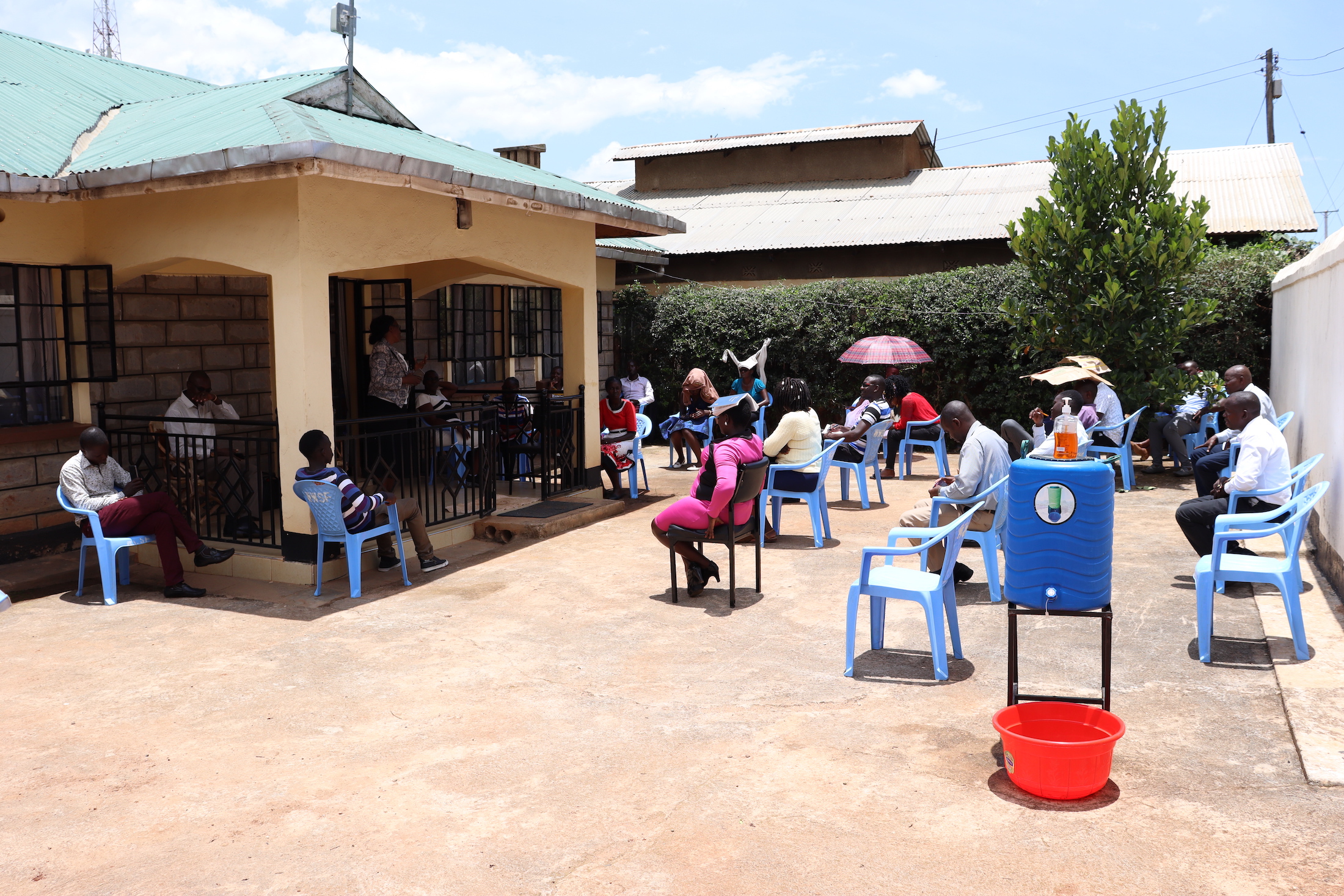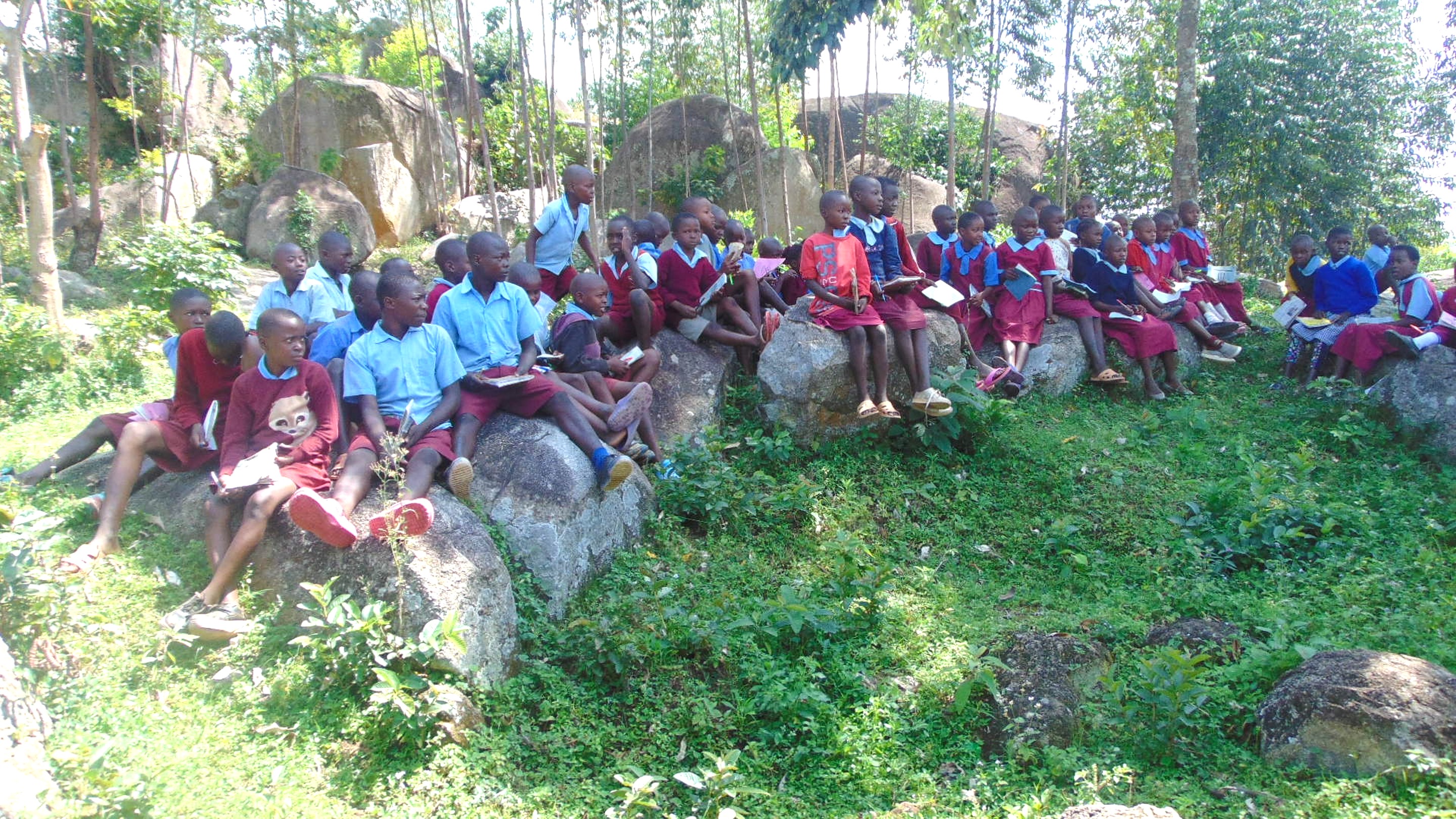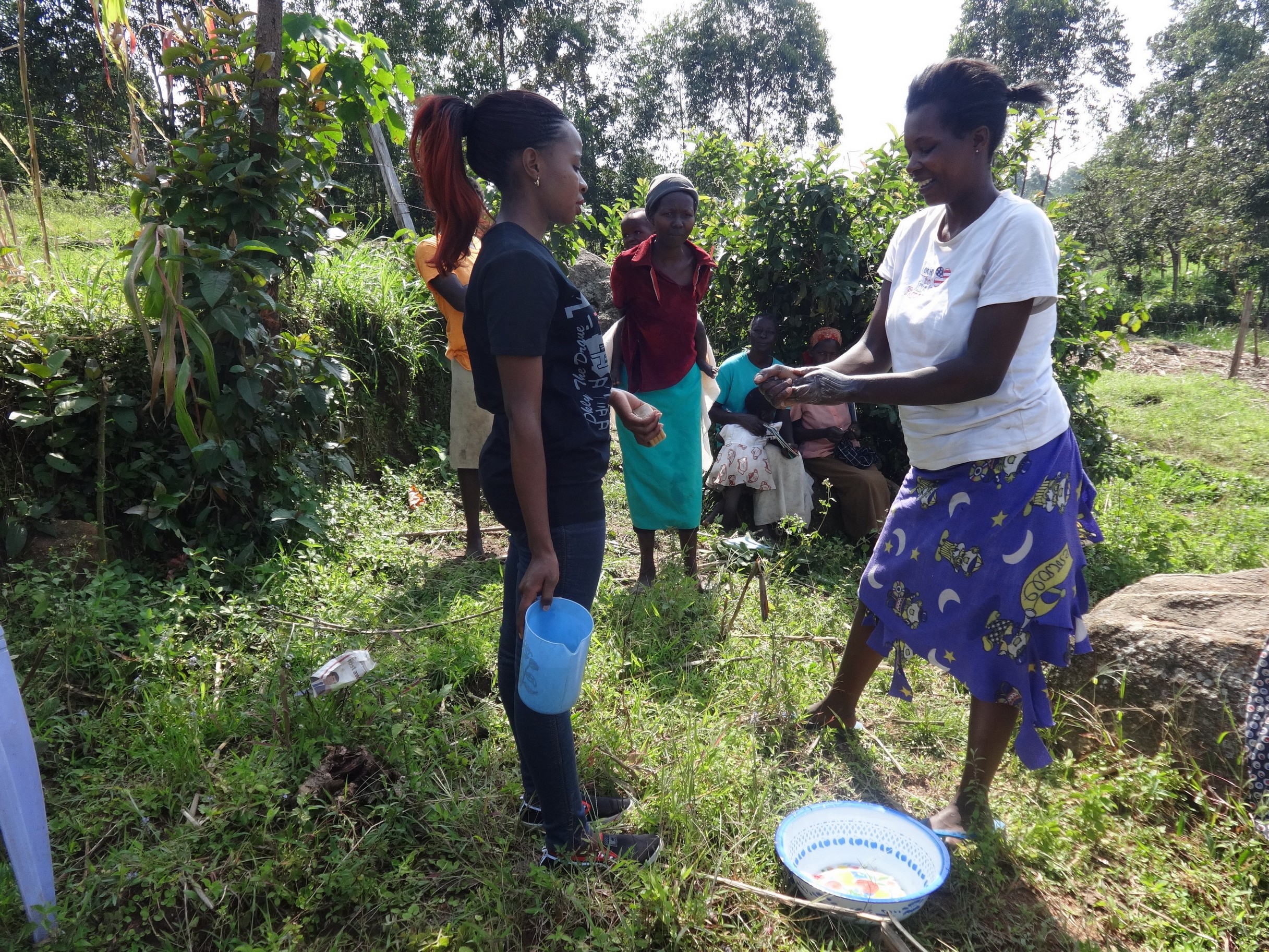Filling the Gap: How The Water Project is working to prevent COVID-19 in Western Kenya

Staff practice safe social distancing during a meeting with the Ministry of Health (March 2020)
The Water Project is working in coordination with the Kenyan government to respond to and prevent the spread of COVID-19 in Western Kenya. Because of our unique relationship with the communities where we work, we are amplifying our sanitation and hygiene lessons by promoting health messaging on local radio stations and working with communities to debunk rumors about COVID-19.
One challenge faced by the Kenyan government is a shortage of health workers. In order to reach more people, the government is reaching out to established teams that have experience in community health outreach – including The Water Project.
The government recognizes that The Water Project (TWP) is a leader in promoting improved hygiene and sanitation in communities and schools across the region. Our teams are already on the front lines of preventing the spread of diseases each day.
Read more about The Water Project’s sanitation and hygiene work in Western Kenya.
The government has taken a series of steps to prevent the spread of COVID-19 in the country since its first confirmed case on March 12. One of its first actions was to shut down points of entry – stopping border crossings and flights into the country. The second step has been to focus on training health workers so that they can inform communities about the virus, what needs to be done to prevent its spread, and what should be done if someone falls ill.
As a result of that work, the Kenyan Ministry of Health identified our team as having the necessary experience and connections to support its COVID-19 training program. Last week, 30 members of our team worked with the Kenyan Ministry of Health to incorporate preventing the spread of COVID-19 into our messaging. We now have a mandate from the government to go out and conduct community training on the virus so that communities and families are empowered to respond to this extraordinary pandemic.

Students listen during a hygiene and sanitation training in 2019 (prior to social distancing)
“We build long-term relationships with communities and schools in Western Kenya. These provide platforms to provide education to communities during this crisis,” explained our Executive Director Catherine Chepkemoi.
With the schools closed, our teams are focused on community outreach. During every community visit we are speaking with community members to learn what they have heard about COVID-19; discuss the routes of transmission and prevention; describe possible symptoms; emphasize handwashing with regular bar soap, and advising people to avoid large groups and to stay home if they or a family member are ill.
“During these critical times of coronavirus, we will ensure that we sanitize the taps of our water points during monitoring and evaluation,” said Catherine.
“We will use every opportunity in the community to sensitize them on coronavirus and emphasize the importance of maintaining social distancing when drawing water from the spring.”

Handwashing demonstration during community hygiene and sanitation training in 2019 (prior to social distancing)
These conversations provide the opportunity to debunk rumors that are spreading about the disease. Messages shared on social media sometimes contain false or misleading information. For example, one rumor we learned about is a belief that only hand sanitizer or liquid soap will work to kill the virus. Our teams are helping people sort through these myths and continue washing their hands with soap – even if it is a bar!
We are also using LUBAO FM, a local radio station broadcasting in both the local Luhya and national Kiswahili languages, to reach out to many listeners in Western Kenya. The platform provided by this media station has been used to teach the community about COVID-19, its symptoms, how it is spread, what steps should be taken to prevent its spread, and how to communicate with health facilities if someone suspects that they or a family member are sick with it.
“We have a team of committed, well-trained, and reliable human resources that is also well-versed with the demographic characteristics of most communities in Western Kenya. As a result, the government feels confident of the work we can do in combating COVID-19 among communities in Western Kenya,” said Catherine.
Home More Like ThisTweet